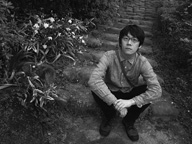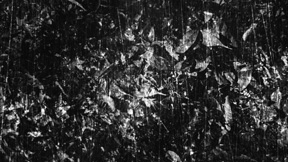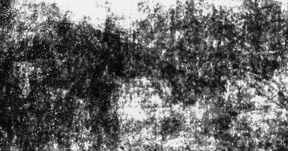Juror
Makino Takashi
 [Juror’s Statement]
[Juror’s Statement]
From 2002 to 2012 I participated in the launch of high-definition telecine in Japan. I was called upon by a post-production company to contribute actively to their digitization work. Every day I would bathe myself in countless images from a variety of time periods and backgrounds. Among these, there was one set I can never forget, the old newsreel films made between WWI and WWII by the former Japanese Army.
Before TV sets became common, “the news” was something one had to watch in a movie theater. Images seen in a cinema have a very strong effect on their audiences; they burn an impression into the psyche that is difficult to forget. Magnificent lies emerge and falsely deified icons dance across the screen; they present themselves solely as entertainment. Truth and lies become ambiguous when turned into a movie. Such is the real, ferocious power of images and music.
I believe you could say the act of enjoying images and sound in a dark space is, in its own way, a very dangerous one for the audience. Japanese people, particularly, have a shameful history of being manipulated, fooled, and destroyed by cinema. When we look around to see whether there are propaganda films in Japan today, we find that those things we call “news,” “fiction film,” and “documentary” still display a primitive manipulation of information akin to that of the pre-WWII period.
I live my life always thinking about how I can contribute to the endurance of cinema as a form of art. Having always lived in this way, I am overjoyed by this opportunity to join the panel of jurors at the Yamagata International Documentary Film Festival. I have a tremendous interest in what kinds of films the world classifies as “documentary,” and how they will be made and evaluated in the future.
After graduating from the Cinema Department of the Nihon University College of Art in 2001, Makino Takashi went to London to apprentice under the Quay Brothers. He then travelled Japan working in stage lighting. In 2002 he began working as a telecine colorist, and in 2004 he started organizing film screenings. Makino later went on to win the Tiger Award at the International Film Festival Rotterdam. His spirited works have found success at many international film, music, and arts festivals. Makino continues to produce work that contains extremely experimental elements and a deep sense of abstraction, while still communicating to his audiences the various stories he has to tell.
2012
 JAPAN / 2013 / No Dialogue / Color / Apple ProRes File / 30 min
JAPAN / 2013 / No Dialogue / Color / Apple ProRes File / 30 min
Director, Photography, Editing: Makino Takashi
Over the course of 2012, the footage and music of this film were transformed upon each screening; in other words, each time it was projected as a film that has only ever been seen once. The shift of images from film to a digital medium hints at the state of contemporary cinematic culture. During screenings audience members are asked to wear neutral density filters which, because of the Pulfrich effect, enable them to see the work in 3-D. This unique screening at YIDFF will feature the filmmaker himself reconstructing the work’s music.
cinéma concret
 JAPAN, THE NETHERLANDS / 2015 / No Dialogue / Color / Apple ProRes File / 24 min
JAPAN, THE NETHERLANDS / 2015 / No Dialogue / Color / Apple ProRes File / 24 min
Director, Photography, Editing: Makino Takashi
Music: Machinefabriek
Source: Makino Takashi
In 1940 Pierre Schaeffer called for a Musique concrète, an abstract music created from already-existing concrete sounds, rather than a concrete music created from abstract sounds. This film is Makino’s effective answer to this theoretical method, an ironic interpretation of the abstract and experimental films of today.
